The ColoHealth Health Wealth Newsletter
November 2019
Vol. 22, Issue 11

Your ColoHealth End-Of-Year Financial Management Reminders
How an Annual Plan Review Can Help Save Money and Maximize Tax Deductions
It’s that time of year again. The leaves fall, the air grows cold, and we work hard towards preparing our household for the upcoming winter. This year, consider adding another chore to the list, one that is both easy to complete and guaranteed to pay dividends in the seasons to come.
An end-of-year financial review is one of the most important tools that we have for staying on track with our financial plans. Whether you are nearing retirement or simply trying to maximize your April 15th deductions for the upcoming tax season, taking the time to look things over is essential to meeting your goals.
What follows is a brief list of the things that you should add to your own end-of-year financial checklist. Remember: 2019 is barreling towards its end, and valuable savings are still available to those who are willing to plan for it.
Review Your Calendar Year Deductible
Because health insurance deductibles operate off of calendar-year based deductibles, the later months of the year is one of the most important times to double check whether or not you’ve hit your deductible and are therefore covered for all remaining health costs of 2019.
If you’ve already hit your deductible for the year, then it might be a good idea to reschedule some of your upcoming procedures for this year as opposed to waiting for 2020. Once the new year hits, your deductible is reset and you will be back to paying out of pocket.
Consider A Health Savings Account (HSA)
As health insurance rates have continued to rise, many millions of people have begun looking for ways to lower their costs, including switching to plans that work with Health Savings Accounts. HSAs are not health insurance, but investment accounts where people with qualifying plans can contribute pre-tax money to cover future medical expenses.
Money deposited in an HSA is tax deductible, grows tax-deferred, and can be withdrawn tax-free if the money is used to pay for medical expenses.
If you don’t already have a Health Savings Account and are looking to have one established for 2019, then you only have until November 30th to get that done. Your contribution does not need to be made until April 15th.
See Which of Your 2019 Medical Expenses are Tax Deductible
(& Maybe Squeeze a Few More In)
It turns out that valuable tax savings can be found in one of the simplest places: your own health care costs. If your medical expenses for 2019 exceed 10% of your gross income, then you are eligible to claim the degree of that excess as a tax deduction.
What this really means is that folks who have already exceeded 10% of gross income in medical costs might want to consider getting more procedures and appointments in before the year is out. Once the new year hits, the timer is reset so to speak and those procedures will no longer be tax deductible.
Revisit Your Retirement Contributions
Saving for retirement can feel like a sprint, but there are ways to make it feel less like a competition. By maximizing your tax-deferred retirement contributions, you can ensure that more and more of your money will stay right where you need it to be … in your pocket.
Even individuals who are self-employed can position themselves to substantially increase their retirement savings. Whether it is an IRA, a Roth IRA, a 401K, or a Simplified Employee Pension (SEP), paying the maximum contribution each year can lead to a more secure retirement through significantly increased savings.
Remember: your Health Savings Account is the first place you should maximize your contribution. If you have an HSA-qualified health plan, then you are in the unique position to contribute, save, & withdraw funds from a specialized account, tax-free. As long as the funds are being spent on qualified health services, they will remain untaxed each step of the way.
Considering how the average couple is on track to spend about $387,000 on healthcare retirement alone, you’re likely going to need the savings.
Ask the Most Important Questions about Long-Term Care Planning
One of the reasons that a lot of people don’t have a comprehensive long-term care plan in place is because it involves asking questions that a lot of people would be uncomfortable with. The truth is that establishing a firm financial future is largely about planning for those unexpected costs and having answers to those tough questions before they actually crop up.
Here are a few of the questions that should be answered when developing a comprehensive long-term care plan:
1. Do you have plans in place in case your family’s income is suddenly severed due to death or injury?
2. If someone in your family needs long term care, are you going to be able to pay for it?
3. At this moment, are you on track to meet your retirement income goals?
A quick mental check to make sure that you are not neglecting some of the most important financial areas of your future can pay in spades by eliminating surprise expenses and planning for unfortunate eventualities.
Download the 6-Step Financial Protection Program
ColoHealth subscribers have immediate access to our comprehensive 6-Step Financial Protection Program, which is all about planning for the worst while setting yourself up for the best. Our experts have poured over all the details in an effort to provide you with a step-by-step game plan for ongoing financial health.
If you have questions about your own financial plan or about health insurance in Colorado, feel free to contact us through our website, day or night. You can also call 800-913-6381 or email [email protected].
To your health and wealth,


Wiley P. Long, III
President – Colohealth
The Colohealth Health & Wealth Newsletter is published monthly and emailed to subscribers at no charge. Subscribe now to stay on top of the critical information you need to know about health insurance, healthshare plans and managing your finances to achieve financial security.
Health Insurance Instant Quote
HEALTH INSURANCE INFORMATION
- Plans approved and authorized under the Affordable Care Act
- Covers Pre-Existing conditions
- Low cost subsidized plans available to those earning
< 400% of the federal poverty level - Unlimited lifetime benefits
- Available during open enrollment (November 1 – January 15), or if you qualify for a Special Enrollment Period
Healthshare Instant Quote
HEALTH COST-SHARING INFORMATION
- Not health insurance, but a way for like-minded individuals to share medical expenses
- Waiting periods on pre-existing conditions
- May exclude sharing for certain conditions or activities
- Enroll any time
- Much lower monthly cost than unsubsidized health insurance

